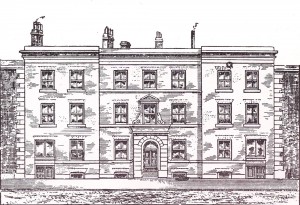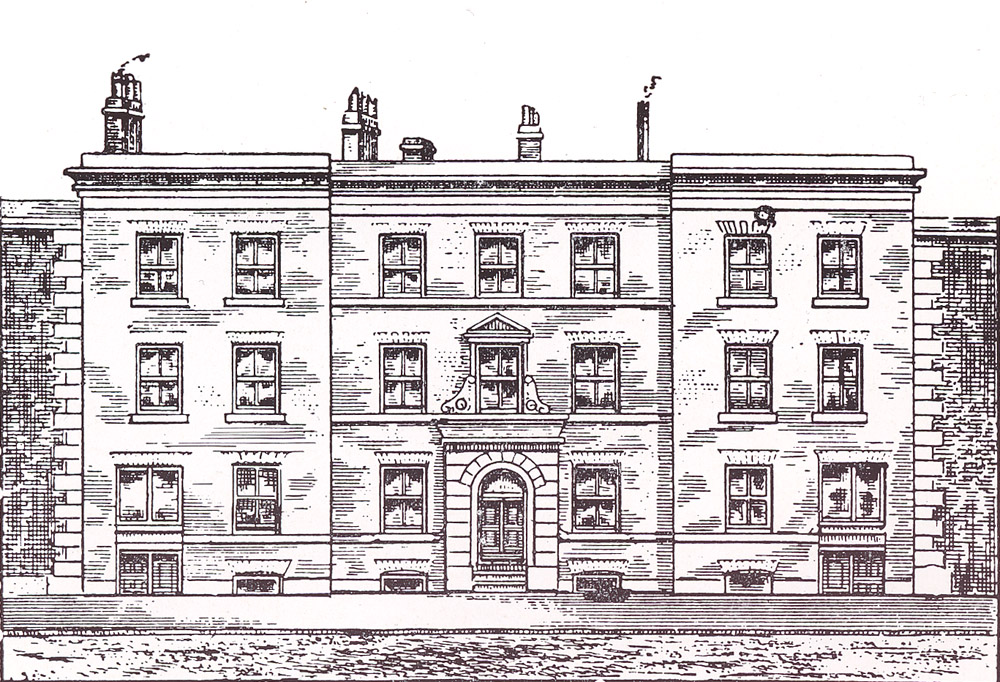BY DOUG WATSON
Sometimes we take education and learning for granted. We’re swimming in an ocean of knowledge. We have added “The Information Age” to the timeline of Western Civilisation. Finding something out is just a click, or a voice command (and in a few years, potentially just a thought impulse) away.
Yet today is not the first flowering of The Information Age, and knowledge has not always been so accessible to all, the lustre of it dulled by familiarity. There was a time when ordinary people came fresh from a long day’s toil in the factories, mills, fields, workshops and forges of industrial Britain to seek knowledge and to broaden their intellectual and cultural horizons. Although there were a number of places they could go in order to slake their collective thirst for information, the ones that I specifically research are the Mechanics’ Institutes.

The word “Mechanics” may conjure images of bald blokes in boiler suits over-charging you for a spark plug. Or at least they tend to overcharge me.
But the original Mechanics were the people who made the Industrial Revolution work. Theirs were the uncounted hands toiling at machines and keeping them running smoothly in the brave new technological world – a world made of steel and driven by steam. The pace of change in the working economy wrought by the advances in technology called for a new breed of worker, armed with new knowledge to put theory into practice and a new lexicon to describe and understand it.
It was to provide the knowledge and understanding essential to keep the machines running smoothly, to keep the engines of industrial progress steaming merrily along, that the first Mechanics’ Institutes were devised. They began as places where workers could borrow books and take lessons in the new technologies, as well as in a (at first) carefully selected range of “useful” and altogether uncontroversial subjects. Their mantra was “Knowledge is Power”.
The Institutes soon grew beyond their original remit, and became multi-role community resources which could and often did function as leisure centres, museums, exhibition centres, concert halls, public lecture halls, banks, elementary schools and even public baths. They invented affordable mortgage lending for the working classes and the package holiday.
They invented the “hole-in-the-wall” bank deposit system and the first modern publicly accessible museum network. The Great Exhibition got its inspiration and most of its ideas from exhibitions the Mechanics’ Institutes had already been putting on for years. The Liverpool Institute once ended up turning an entire wing of its shiny new building into a full-scale mock-up of a Native American settlement for one such Exhibition.
Institutes ended up spreading all over the country and then all over the world for the simple reason that they were generally a splendidly brilliant idea.
How can a place where someone could go after work to borrow books, listen to someone playing Scottish airs on an ad-hoc instrument made of glasses full of water, watch working mock-ups of gadgets (and even mess about with them) while strolling around with a copy of Walter Scott’s Redgauntlet tucked away under arm not be awesome? How can that not be the coolest thing ever? Why, one might even bump into someone teaching themselves advanced mathematics after a hard day at the factory, someone whose destiny was to one day co-discover, say, the planet Neptune. Well, it would happen in the reading room at Devonport Institute anyway…
It’s a bit like going to the local library today to borrow a book, before you then proceed to catch a concert, admire walls bedecked in fine art, dance an energetic tango and then have your mortgage arranged by the librarian on the way out…
So how come the world is so unaware of Mechanics’ Institutes, then?
Well, it’s one of the ironies of history that an educational movement founded to foster interest in knowledge in order to facilitate progress, ended up being overtaken by it.
Increasing state involvement in, and regulation of, the education sector and information economy (the 1870 Education Act and the 1850 Public Libraries Act, to name but two) removed the need for Institutes as such, although many changed names, becoming Technical Colleges and Athenaeums, while others became community centres, bingo halls, or even fell into ruin. That was the story in Britain at least, however the picture overseas was better, where some Institutes thrive even today and retain much of their original purpose.
Now, I want you to just think for a second. Think of how things are now.
After a long, tiring day of physical labour, who goes to the library to learn Euclid or Wordsworth, simply because learning about those things is an end in itself? In today’s world, what is knowledge? Is it a commodity, with you as the consumer? Is it an absolute essential, a basic human right? Does it have a value beyond what it can do for you, or what you have to do in order to obtain and maintain access to it? When’s the last time you learned something for, I don’t know, some intangible reason like fun?
I would like to leave you with a challenge based on this question.
I want you to go and fill four glasses with varying amounts of water, pick up whatever you read for fun but hardly ever get chance or time to look at, grab a spoon and play a tune on the glasses with it while reading aloud for the sheer hell of it.
Go on. Do it.
Do it NOW.
Turn the telly off.
Put your phone on silent.
Pretend you’re in an Institute.
Feed your inner Mechanic.
Feel the words. Feel the novelty.
Because Knowledge is Power.
Because Knowledge is still new, you know.
Because Knowledge is fun.


